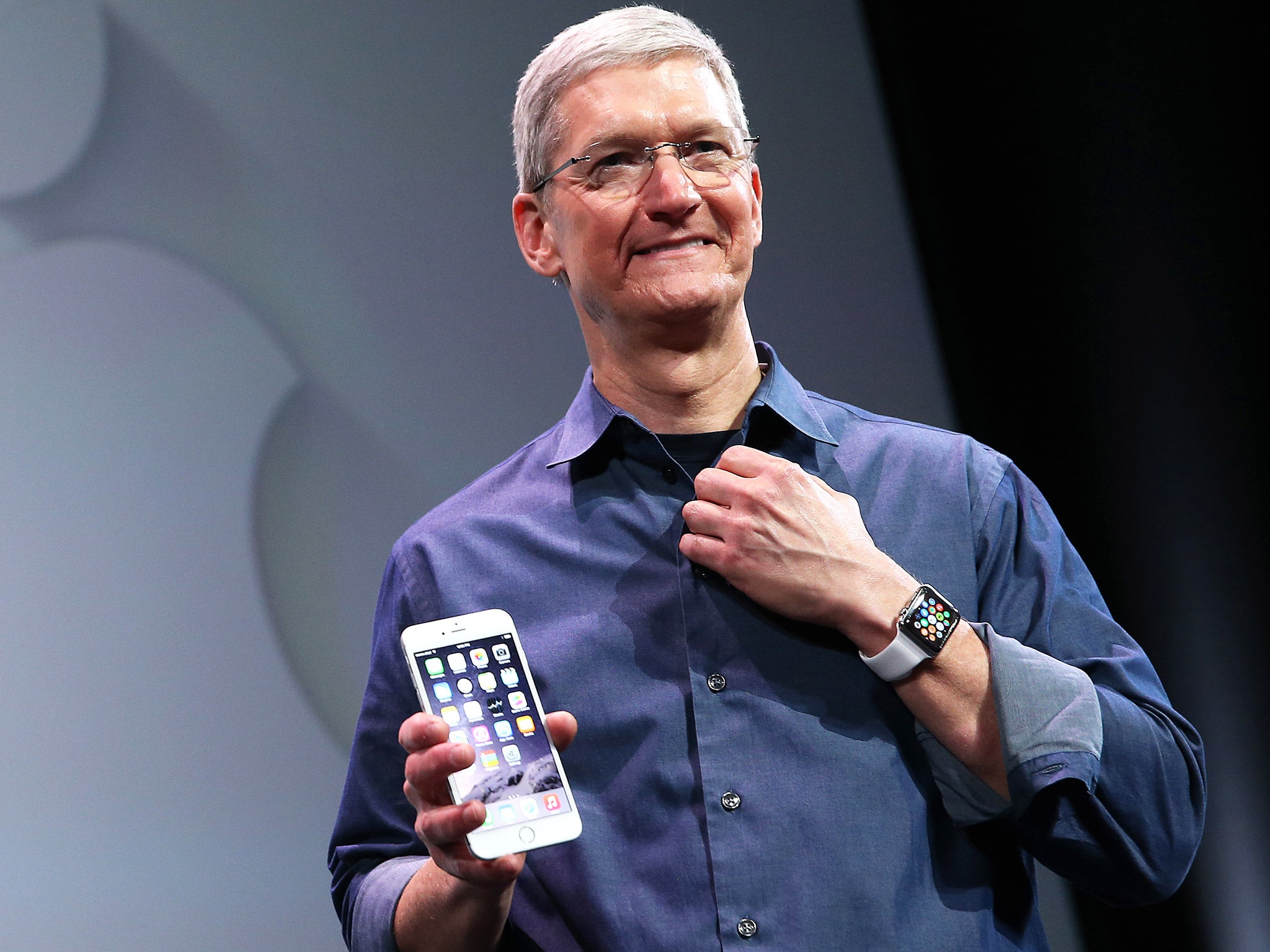iPhone Error 53: Apple is scolding us like an angry parent
If the Touch ID fingerprint scanner on your phone has been tampered with or replaced by a third party, Apple shuts the phone down

Your support helps us to tell the story
From reproductive rights to climate change to Big Tech, The Independent is on the ground when the story is developing. Whether it's investigating the financials of Elon Musk's pro-Trump PAC or producing our latest documentary, 'The A Word', which shines a light on the American women fighting for reproductive rights, we know how important it is to parse out the facts from the messaging.
At such a critical moment in US history, we need reporters on the ground. Your donation allows us to keep sending journalists to speak to both sides of the story.
The Independent is trusted by Americans across the entire political spectrum. And unlike many other quality news outlets, we choose not to lock Americans out of our reporting and analysis with paywalls. We believe quality journalism should be available to everyone, paid for by those who can afford it.
Your support makes all the difference.The most furious critique of Apple that I've seen in the past few days came in the form of an analogy: what if your bank detected fraud on your account, disabled your debit card and then permanently emptied your account to protect you against fraudulent use of that money? It would be monumentally unfair – but that's how many people have been reacting to the dreaded iPhone "Error 53" that has received so much publicity in recent days.
People have quietly moaned about the problem for months, but it took the anguish of a journalist, Antonio Olmos, to bring it to wider attention over the weekend. After having had his iPhone repaired by a non-authorised dealer in Macedonia while on an assignment, a Apple system software upgrade effectively killed his phone. The reason, Apple has explained, is one of enhanced security: if the Touch ID fingerprint scanner (which enables access to various features including ApplePay, and doubles as the phone's Home button) has been tampered with or replaced by a third party, Apple shuts the phone down. It's to keep you safe. It also leaves you without a phone.
Tech commentators found themselves briefly wondering why Apple couldn't have provided a more graceful solution to this problem – perhaps disabling fingerprint access and requiring the alternative security measure (a passcode) instead. After all, if I've got damp hands and try to unlock my own iPhone using a fingerprint, it doesn't work and I have to tap in the code instead.
But their wondering was only brief, because this is Apple, whose ethos is centred around maintaining tight control of the entire ecosystem surrounding its products – including repairs. Yes, Touch ID undoubtedly needs to be safe, and it's going to be playing a big role in the way millions of us pay for goods and services. But the bricking of an expensive device feels like being scolded by an irate parent: you've dared to operate outside the terms of the 6,250-word service agreement, and you must now be punished by being forced to buy a new phone. Little wonder that many have resolved to make that purchase an Android-based phone instead.
It's a strange relationship to have with a company, where you're gently cosseted and sweetly promised a superior digital experience just as long as you do what you're told – don't try using third-party cables, don't try installing unapproved software and certainly don't get your device repaired by Vladimir around the corner, even if the nearest authorised dealer is 500 miles away.
Apple-haters have for years told people that they don't even own their Apple devices, that they've merely shelled out for the right to use them in a pre-approved way. For its part, the computer repair industry has also complained of being shut out of Apple-related business as components have got smaller and security concerns greater: it's a convenient move for a company well known for its all-controlling nature.
Many Apple customers are happy with this arrangement. They are obedient souls, content to refrain from any transgressive behaviour, however slight. Others, however, are consulting lawyers, wondering if a company is allowed to force people to use official repair channels, with the threat of having their device broken if they don't. Some of those lawyers think they have a case. Apple, meanwhile, has told said customers to contact Apple Support.
Join our commenting forum
Join thought-provoking conversations, follow other Independent readers and see their replies
Comments